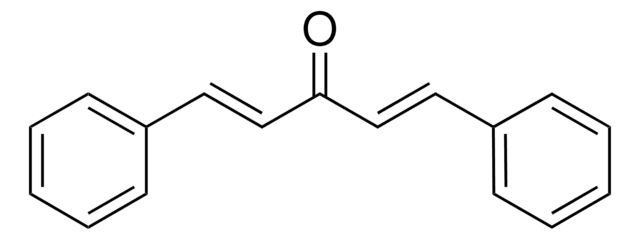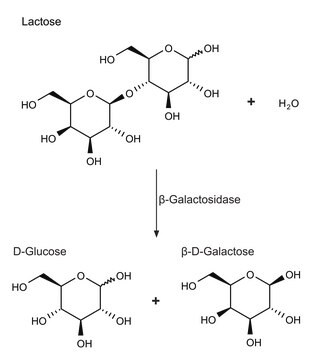All Photos(1)
About This Item
Linear Formula:
NaOH
CAS Number:
Molecular Weight:
40.00
MDL number:
UNSPSC Code:
12352316
PubChem Substance ID:
NACRES:
NA.21
Recommended Products
grade
for molecular biology
Agency
suitable for SM 4500 - NH3
vapor pressure
3 mmHg ( 37 °C)
form
liquid
concentration
5.0 M
pH
14
density
1.327 g/cm3 at 25 °C
storage temp.
room temp
SMILES string
[OH-].[Na+]
InChI
1S/Na.H2O/h;1H2/q+1;/p-1
InChI key
HEMHJVSKTPXQMS-UHFFFAOYSA-M
Looking for similar products? Visit Product Comparison Guide
Application
Sodium hydroxide solution can be used:
- As a base in the reduction of oximes, imines, and hydrazones using Raney nickel.
- In the preparation of trans-1,2-cyclohexanediaminetetraacetic acid standard solution applicable in the synthesis of the ferric chelate complex.
- In the synthesis of radiolabeled quinolinyl analogs for α-synuclein binding assay studies.
Signal Word
Danger
Hazard Statements
Precautionary Statements
Hazard Classifications
Eye Dam. 1 - Met. Corr. 1 - Skin Corr. 1A
Storage Class Code
8B - Non-combustible corrosive hazardous materials
WGK
WGK 1
Flash Point(F)
Not applicable
Flash Point(C)
Not applicable
Choose from one of the most recent versions:
Already Own This Product?
Find documentation for the products that you have recently purchased in the Document Library.
Customers Also Viewed
Design, synthesis, and in vitro evaluation of quinolinyl analogues for α-synuclein aggregation
Yue X, et al.
Bioorganic & medicinal chemistry letters, 28, 1011-1019 (2018)
F Gaboyer et al.
Scientific reports, 7(1), 8775-8775 (2017-08-20)
The artificial mineralization of a polyresistant bacterial strain isolated from an acidic, oligotrophic lake was carried out to better understand microbial (i) early mineralization and (ii) potential for further fossilisation. Mineralization was conducted in mineral matrixes commonly found on Mars
Miki Wada et al.
Nucleic acids research, 42(12), 7851-7866 (2014-06-11)
During termination of translation in eukaryotes, a GTP-binding protein, eRF3, functions within a complex with the tRNA-mimicking protein, eRF1, to decode stop codons. It remains unclear how the tRNA-mimicking protein co-operates with the GTPase and with the functional sites on
Xi-Ping Huang et al.
Nature, 527(7579), 477-483 (2015-11-10)
At least 120 non-olfactory G-protein-coupled receptors in the human genome are 'orphans' for which endogenous ligands are unknown, and many have no selective ligands, hindering the determination of their biological functions and clinical relevance. Among these is GPR68, a proton
Richard J Travers et al.
Blood, 124(22), 3183-3190 (2014-09-10)
Polyphosphate (polyP) is secreted by activated platelets and has been shown to contribute to thrombosis, suggesting that it could be a novel antithrombotic target. Previously reported polyP inhibitors based on polycationic substances, such as polyethylenimine, polyamidoamine dendrimers, and polymyxin B
Our team of scientists has experience in all areas of research including Life Science, Material Science, Chemical Synthesis, Chromatography, Analytical and many others.
Contact Technical Service





